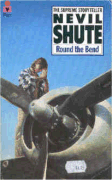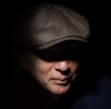Let me tell you a story...
 Sit down, take a deep breath, and relax. Let me tell you a story, a true story. I’ll begin this way…
Sit down, take a deep breath, and relax. Let me tell you a story, a true story. I’ll begin this way…
I lived and worked in Laurel, Mississippi, from 1979 through
1982. I moved there from Mobile,
Alabama, where I’d also lived for three years.
Prior to living in Mobile, I lived in Jacksonville, Florida for…, you
guessed it, three years. When I left
Laurel, my three year cycle was broken, due in large part to the book, Round
the Bend, by Nevil Shute.
When the chartered 707, carrying over two hundred of us, cleared
Vietnam’s airspace I thought I’d closed a chapter in my life story. I didn’t realize then that life doesn’t have
chapters. I know now that life is a
never-ending story; one sentence leads to the next, to the next, to the next… I
knew that I wanted to stay in the small north Florida town where I’d finished
high school, at least until I got a few things sorted in my head. That didn’t work. The only job I was qualified for existed
only in the Republic of South Vietnam.
The job I finally accepted didn’t pay enough to support me and my family. Within two months, I was back to searching
for a job.
To make a year’s long story shorter, in 1976 I was working
for Ryder Truck Rental in Jacksonville, Florida. After three years in Jacksonville, I
transferred to Mobile, Alabama. One day
a man came into the shop, told me he was from Mississippi, where he worked in
trucking. He asked if he could take a
look at our new shop. I gave him the
whole tour, more than he bargained for,
I thought later. But I was wrong. Inside of a week, he called and told me that
he and his brother would like to offer me the position of Managing Partner in a
car dealership they owned in Laurel, Mississippi. I had moved to Mobile when I discovered that
Vietnam Veterans were not in Ryder Truck Rental’s future District Manager
personnel pool. I thought about that for
a couple of seconds, and then told him I’d like to talk more about their
offer.
Two days later I accepted the position, sold my house in
Mobile, and moved to Laurel. My first
day on the job was a shocker. I
discovered that everything I’d been told about the dealership was a lie. The only assets the business had was a falsified
balance sheet and two lines of credit secured by the automobiles. They went on to explain that they generated
operating capital by using the proceeds of sold cars rather than paying them
off within twenty-four hours required by the terms of the credit lines. Seeing the shock on my face, my partners explained
that “everyone did it,” and made it clear that they expected me to lie, to the
representatives of the two institutions that issued the lines of credit, about
the whereabouts of cars that weren’t on the lot,.
I ignored the loud voice in my head that was screaming, “Don’t
do it!” And I did do it. I convinced
myself I had no choice. I lost sight of
my innate knowing that we always have a choice.
For the next two years I ran the dealership, on misappropriated funds,
and every day the knowledge of what I was doing ate at me.
One evening after I closed the business, I went to the
Laurel Public Library and began browsing the shelves for a book that I hoped
would get my mind off the condition I’d let my life slip into. I’d been up and down a few rows of fiction
when I stopped to look at the books at eye level. A second or two later something rustled on a
higher shelf. I looked up just as a book
bailed out of its place two shelves above my line of vision. I caught it before it hit the ground. I looked around to see if anyone had noticed
what had just happened – it’s a guy thing.
I was disappointed to see that I was alone. Only then did I look at the book.
It was Round the Bend by Nevil Shute. I had never heard of the book or the author. I
opened it to the first page and read:
“I came into aviation the hard way. I was never in the R.A.F., and my parents
hadn’t got fifteen hundred pounds to spend on pilot training for me at a flying
school. My father was, and is, a crane
driver at Southampton docks, and I am one of seven children, five boys and two
girls. I went to the council school like
all the other kids in our street, and then when I left school Dad got me a job
in a garage out on the Portsmouth Road.
That was in 1929.
I
stayed there for about three years and got to know a bit about cars. Then, early in the summer, Sir Alan Cobham
came to Southampton with his flying circus, National
Aviation Day, he called it. He
operated in a big way, because he had about fifteen aeroplanes, Avros and Moths
and a glider an Autogiro, and a Lincock for stunting displays, and a big old
Handley Page airliner for mass joyriding, and a new thing called an Airspeed
Ferry. My, that was a grand turnout to
watch.”
The next morning, as the sun rose on Laurel, Mississippi, I
read the final passage.
The following week a representative from one of the lending
institutions came to the dealership and counted the cars. When he finished he came in my office and
said, “Hi Bert. You’re missing a few
cars. Tell me where they are for my
report, and then we can go to lunch.”
I looked at him, smiled, and said, “Jerry, I sold them, and
I’m using the money to keep the dealership running.”
I didn’t go to lunch that day and that afternoon I told
Jerry’s boss exactly what I’d told Jerry, expecting to hear him say that I was
about to go to jail. Instead, he looked
at me and said, “We’ve known that for a while.
Most of our dealers are doing it.”
He paused, opened his briefcase, pulled out an envelope, looked at me
and continued, “I have a check here for you in the amount of $250,000.00. It’s an unsecured loan…”
I don’t know what else he said, but I do remember, like it
was yesterday, that when he finished talking I looked at him, and then I looked
at my two partners who had joined the meeting, and said, “You three can do what
you want to do, but the last couple of years have convinced me that this
business isn’t for me. I’ll be doing
something else from this day forward.”
Quickly, because it isn’t the point I want to make with this
blog post, I’ll tell you what happened next.
The lending institution wouldn’t make the loan unless I was the Managing
Partner and my partners didn’t want to operate without me running the place, so
we closed the business.
What is my point in telling you this? That’s simple. A book I’d never heard of changed my
life. It wasn’t a self-improvement book. It was a novel, a novel written by a novelist
who wrote twenty-one other books; a writer, just like you and me. He sat at a typewriter a long time ago and
poured himself into telling a story. He
didn’t write that story for me, he wrote it for himself, and he gave it his
very best effort. We have got to do the same. We can’t afford to give our writing anything
but our very best shot. We shouldn’t do
it for money or fame. We should write
for ourselves and because just maybe, one day someone is going to find our book
and read it because they need to get their mind off what’s going on in their
life. And, you can trust me on this, the
answers that make a difference are written into novels by authors just like you
and me; writers who know what matters and are willing to write about it.
Oh yes, the final passage of Round
the Bend goes like this:
“I still think Connie
was a human man, a very, very good one – but a man. I have been wrong in my judgments many times
before; if now I am ignorant and blind, I’m sorry, but it’s no new thing. If that should be the case, though, it means
that on the fields and farms of England, on the airstrips of the desert and the
jungle, in the hangars of the Persian Gulf and on the tarmacs of the southern
islands, I have walked and talked with God.”



